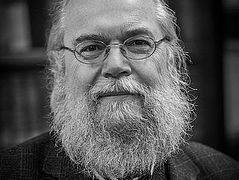In the wake of another cold-blooded school shooting, this time by a teenager who had been baptized in the Orthodox faith, rector of the Church of St. Jonah in Spring, Texas (ROCOR) Fr. John Whiteford talks about a sore them—how to keep ourselves going in the spiritual life and how to impart this to our children, against the growing tide of anti-Christian cultural norms.
In the name of the Father, and of the Son, and of the Holy Spirit.
If there is one point that we should get from the commemorations of the Holy Fathers on this Sunday and many other Sundays and also all the martyrs that we celebrate throughout the year, then that’s that the history of the Church is a history of the constant struggle to preserve the faith and to pass it on in the face of many enemies which seek to destroy it.
The Church is faced with countless external enemies that have sought to crush it from without, persecute the Church, kill everybody who confesses they’re Christians, force those that aren’t willing to die to renounce their faith; and the Church has withstood all of that. But also we’ve had numerous heresies that have arisen from within the Church, and these heresies have sought to corrupt the Church from within. And we continue to face both external and internal foes even to this day. This is true on the big scale of the grand scope of the history of the world, but it’s also true on the much smaller scale of our families and our own souls. We have to struggle if we want to maintain our faith.
As a matter of fact, if you think about it, there is nothing in this life good that we don’t have to struggle to either make it happen or to preserve it. A country remains at peace only because it has many people who are constantly preparing for war in order to defend that peace. We can walk the street safely at night only because we have law enforcement that are constantly watching to make sure that those that would like to do us harm aren’t able to do that. It’s only with great labor that we’re able to put food on the table, and have a roof over our heads, and clothes on our backs, and provide for our families. This is also true of the spiritual life. Prior to the fall of man, man lived in constant communion with God and he had all that he needed readily available to him, so that struggle was not part of human existence. But after the fall we live in a world that doesn’t just give us what we need, and we have to work to get what we need in this world; and after Adam fell God said to him, pronouncing a curse, Cursed is the ground for thy sake; in sorrow shalt thou eat of it all the days of thy life; thorns also and thistles shall it bring forth to thee; and thou shalt eat the herb of the field; in the sweat of thy face shalt thou eat bread, till thou return unto the ground; for out of it wast thou taken: for dust thou art, and unto dust shalt thou return (Gen. 3:17-19).
Our crops don’t just grow. We have to labor to make that happen; it’s by the sweat of our brow. The same is also true though of the spiritual life. We don’t just become great saints because we just sit around waiting for it to happen and for it to hit us sometime. We don’t make spiritual progress just by waiting for that to happen. Just as a field left to its own is going to grow weeds and thorns, the same is also true of the field of our soul. Christ said, “The Kingdom of Heaven suffereth violence, and the violent take it by force” (Mt. 11:12). And this is a saying that people have often puzzled over what it means. Well the Fathers tell us what it means. They tell us that it means that we attain the Kingdom of Heaven by a violent struggle; it’s a violent struggle within for the most part, but it’s a struggle to do what we need to do to open our hearts and receive that Kingdom.
In our fallen state, we’re lazy. But when it comes to making a living, most of us are able to force ourselves to do what we need to do to provide for ourselves and for our families, because we know what the results will be if we don’t. If we don’t work, we’re not going to be able to eat, or if we live on charity, we might not at least be able to eat what we want when we want. If we don’t pay our mortgage or our rent, we’re going to end up homeless. Maybe the government will provide us with some kind of a shelter, but probably not the kind that we would want. And on the other hand, if we work hard and we’re able to provide a somewhat comfortable living for ourselves and for our families, we know what that result will be. So those things are all very tangible. Even though perhaps we didn’t get to bed on time the night before, but when the alarm goes off in the morning we’re able to make ourselves get up and go to work because we know that if we don’t do that, bad things are going to happen to us.
But all too often we don’t see this in the spiritual life. We don’t realize that if we don’t go to work spiritually, we’re going to end up like a homeless person spiritually. We’re not going to have what we need, we’re not going to be able to experience the grace of God in our lives the way that we only can when we work to open our hearts up to that grace. We don’t force ourselves to pray, we don’t force ourselves to read the Scriptures or to come to church. We often only do it when we feel like it.
St. John of Kronstadt says that if we don’t force ourselves to pray when we don’t feel like it, prayer will completely be extinguished in our lives, because more often than not, we’re not going to feel like it. On the other hand, if we force ourselves to pray, if we force ourselves to go to church, if we force ourselves to read the Scriptures when we don’t feel like it, we’ll feel like it more often; more often we’ll begin to see the benefit of doing those things.
In the book of Proverbs we’re told, A little sleep, a little slumber, a little folding of the hands to rest; so shall your poverty come as a robber, and your need as an armed man (Prov. 24:33-34). Obviously in the material world this has the application that if you just sit around, not busy about trying to make a living, poverty is going to sneak up on you and take up everything that you have, and you’re going to end up in a very bad way. But this is also true spiritually. If you’re just relaxing, if you’re just taking it easy, if you’re not making any effort, spiritual poverty is going to come upon you like a robber and like an armed man.
It’s precisely when we don’t feel like praying that we have to force ourselves to do so; it’s precisely when we don’t feel like going to church that we have to force ourselves; because the Kingdom of Heaven suffereth violence, and the violent take it by force (Mt. 11:12). If we want to attain that Kingdom, we have to buffet ourselves spiritually, so to speak, to make ourselves do what we know that we need to do.
Unfortunately, this week we’ve had another vivid example about how our society is spinning out of control in a kind of decay, morally and spiritual; and we’re seeing that just down the highway in Santa Fe Texas. It turns out that this seventeen-year-old man, who murdered ten people and seriously injured ten more, had been an Orthodox Christian. I don’t know the family and so I’m not giving you any new information about that family situation; I only know that his family is a member of the Orthodox Church in that area. Metropolitan Isaiah, who’s the bishop over that parish, wrote a letter and mentioned that the boy’s parents belong to one of these churches. I might be reading too much into his words, but the fact that he said “his parents belong,” rather than that this young man belongs to this parish would indicate that he ceased to be active. We do know that on his Facebook page he had listed himself as an atheist and had all sorts of occult and satanic symbols, and so he had gotten off the rails at some point; although at least to some extent he was a member of the Orthodox Church in his past. And his parents may very well have done everything they possibly could’ve done to raise him in the church. I really don’t know and I can’t comment on that. But the lesson that we should take from that is not to think about what horrible parents would produce a child like that, but to think that that could be me. That could be my kid; that could be a kid in our parish. It’s not just the parents that are responsible; the parish is responsible, the godparents are responsible, everyone who was in that child’s life had some measure of responsibility, and they’ll all have to give an account.
Now on the Day of Judgment, when we have to give an account for our brothers and sisters in this parish (many of whom fall away from the faith because they haven’t adequately embraced it), will we be able to say, “Lord, I did everything I possibly could so that the children of my parish would grow up as pious Orthodox Christians”? Will we be able to say that with a straight face? From time to time you might have received emails from your priest asking for volunteers for Sunday school teachers. I know that not everybody is able teach a Sunday school class, but if you can teach a Sunday school class, maybe you ought to pray about it and think about whether that’s something that you need to do. I know we’re all busy, but we have to make time for the things that are important, because our lives are going to be consumed doing something—and if we allow all the stuff that fills up our lives that are really not important to just take up all our time, that’s what will happen. But the most important things in our lives will be neglected and we will have to live with the results of that.
First of all, we as parents and as people in a parish, we need to set an example of how we deal with our children. When they look to us they need to see what it means to be a faithful, devoted Orthodox Christian; we have to show that God’s the number one priority in our lives and not just an afterthought. And they’re not going to listen only to what we say–they’re going to watch what we do. And if we go to church when it’s convenient, when there’s not a good football game on TV, when there’s not something else to do, when there’s not some inconvenience, they’re going to notice that, and they’re going to grow up probably either emulating us and not being any more pious than we are—or more likely they’re going to be even less pious than we are, because they’re going to say, “Well why am I even bothering going to this Church? It doesn’t really change anything in anyone’s life, it doesn’t really mean anything; there’s better things I could be doing.”
We have to make sure that God has first place in our life, and we have to demonstrate that with our time, with our treasure, and with our efforts with the kind of energy that we put into it. And even when we do that, we might still have a child who falls away from the faith, because we live in an evil time. Of course, every individual is a free moral agent, and ultimately we all make our own decisions and our choices in life. You can have a very devout parent and still fall away from the faith if you choose to do so. But generally speaking, the proverb is true that says, Train up a child in the way he should go: and when he is old, he will not depart from it (Prov. 22:6). This not an infallible promise from God that it will always be true, but rather a piece of wisdom that’s passed on to us, saying that if you do that—train up your child in the way he should go—this will generally be the result.
We need to make sure that we’re not just wearing ourselves out trying to provide a comfortable living and material existence for our children. For a lot of us, that’s just what we do, and we justify it saying, “I need to take care of my family”—and we certainly do need to take care of our families. But you not only have to put the same amount of effort into raising your child in the faith, you have to put more effort, because we live in a society that is antithetical in most respects to the Christian faith. This wasn’t always true; there once was a time where you might have been able to just let your child coast along with everyone else because the whole culture was encouraging you to at least some level of belief in God. This alone is not enough to make you a saint, but at least you were being more encouraged than discouraged by the general trend in society. But that’s no longer true. And as a matter of fact, a year before this child was born, the school district of the school that he went to had a case that came before the Supreme Court: At football games they had student-initiated prayer, and there were people who didn’t like that, because hate God, they hate any expression of faith in the culture, and are trying to stamp it out. Unfortunately a majority of our Supreme Court sided with those people. Moreover, in the minority dissent, written, I believe, by Chief Justice Rehnquist, it was pointed out that the majority of the justices were hostile to any expression of religious faith in society.
Now did that one case cause this shooting? I’m not trying to say that, but that one case combined with all the other cases and all the other efforts by unbelievers in our society to denigrate faith, and to marginalize it, and to push it to the side, and to raise our children as good materialist atheists—that’s definitely a factor in how a child could grow up and become so soulless that he would plan to murder his classmates. He reportedly intended to kill himself, but he didn’t have the courage to do it. And thankfully for his soul, at least there is an opportunity for him yet to repent. But this didn’t happen just because that boy was born that way; it happened because he grew up in a culture that had encouraged him to head down that road, and we as parents have to work very hard to make sure that our children do not succumb to that influence.
Society will applaud you if you take good material care of your family, but society is going to mock you if you try to put forth the effort to raise your children in the faith—so it requires a much greater effort. You’re going to have to work a lot harder to do that, and you need to make sure that it’s not just some kind of afterthought.
St. Paul tells us, or rather he’s quoted as saying in the book of Acts (and this echoes the words of the Lord that I quoted): We must through much tribulation enter into the Kingdom of God (Acts 14:22). It’s not easy; it’s not just going to happen without our effort. We have to roll up our sleeves and get to work; we have to work on our own souls and we have to fight the world, the flesh and the devil for our own salvation—but we definitely have to do that also for the sake of our children if we want to raise them up to be pious Orthodox Christians. Amen.




